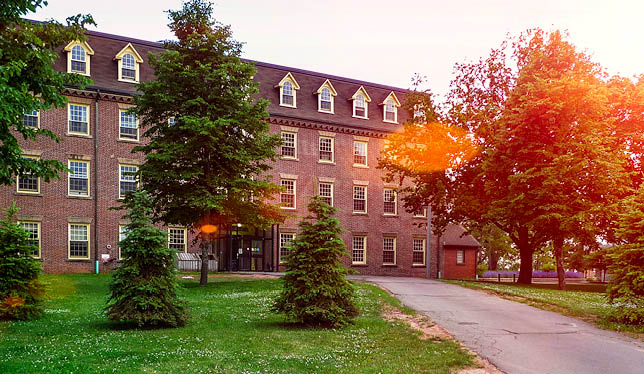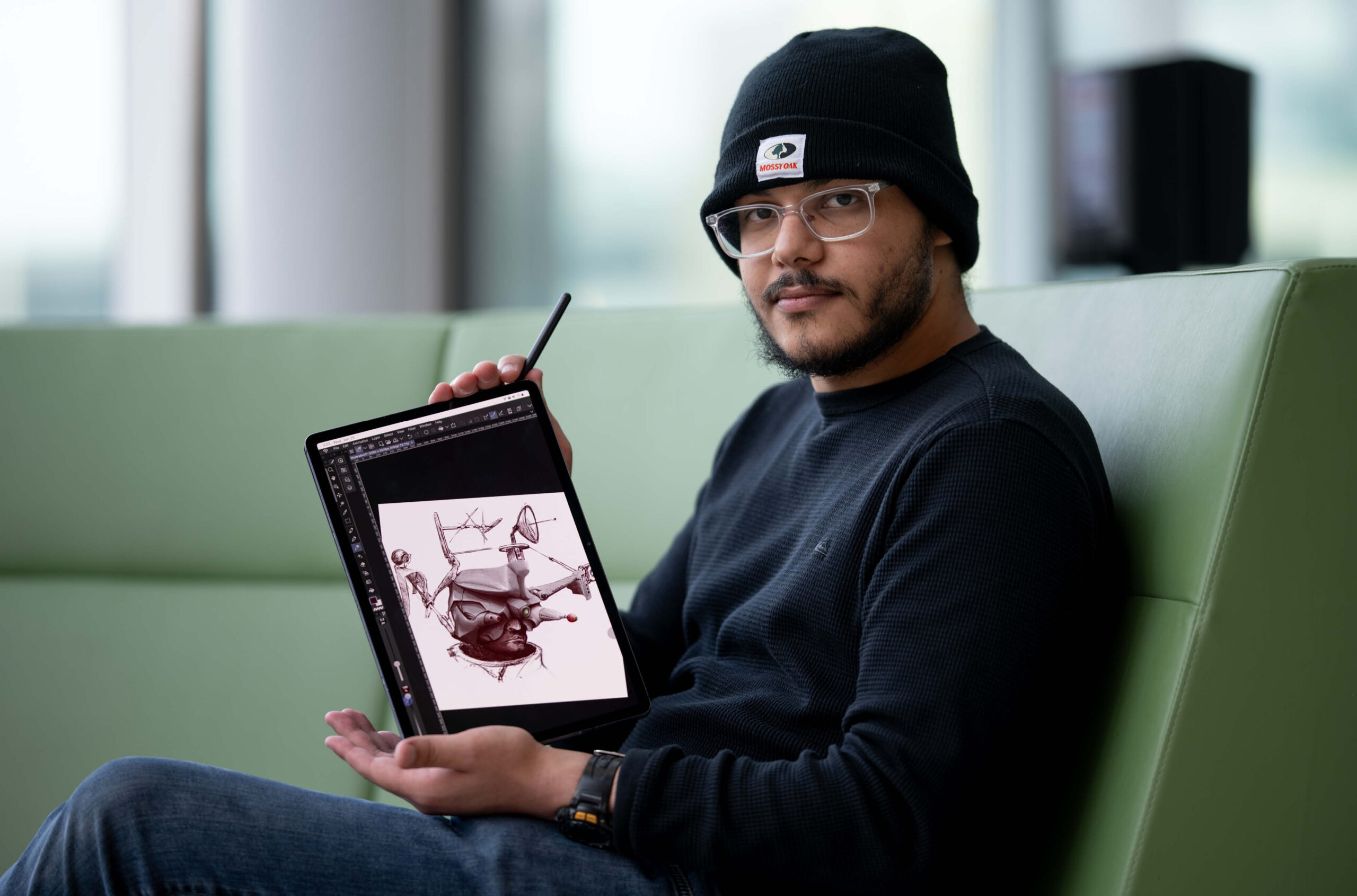UPEI implementation plan is underway
There is ‘an overwhelming desire of the community to move forward,’ says new president Wendy Rodgers.

The University of Prince Edward Island has detailed the steps it’s taking to address the controversial findings of the University of Prince Edward Island Review in a recently released implementation plan. The review was initiated following the 2021 resignation of the then-president amidst widespread workplace misconduct allegations. Released in June 2023, the review looked at both the allegations as well as the university’s harassment and discrimination policies and practices. It concluded that “the university has failed to create a safe, respectful, and positive environment for working and learning for all members of its community.” Known colloquially as the Rubin Thomlinson report, it caused substantial fallout for the university, with overhauls to both administrative and board leadership.
Last March, the university released the UPEI Action Plan: Building a Culture of Trust, Safety, and Inclusion, describing it as a roadmap to improve governance, transparency, accountability and campus culture. It was followed by the implementation plan for Year 0 (2023-2024) and Year 1 (2024-2025) at the end of July. “The university has gone to great lengths to respond to the Rubin Thomlinson report,” said Wendy Rodgers, UPEI’s president since June 2024. “The action plan extends over five years, and the implementation plan is intended to describe year by year the university’s intentions and activities that will be addressing the recommendations in the action plan,” said Dr. Rodgers. The implementation plan for Year 2 will be released in spring 2025.
The activities outlined in the implementation plan fall into four general areas: to acknowledge and demonstrate accountability for the issues noted in the Rubin Thomlinson report, strengthen the governance and leadership structure, improve campus culture, and put new policies and processes in place to prevent and address discrimination, harm and violence. Both the action plan and implementation plans are managed by an action plan program manager in conjunction with implementation leads and senior administrators across the university. A board of governors campus culture oversight committee is charged with reviewing progress and reporting to the board. Progress will be further assessed by annual audits by an external auditor.
Read also: P.E.I.: Small island, big challenges
Over Dr. Rodgers’ first few months in her tenure as president, she said she observed “an overwhelming desire of the community to move forward. They want to get back on track with being a world-class university. They want to be focused on their scholarship, on their students, on their research and the support services around those.” The university has made significant progress in the year since the release of the Rubin Thomlinson report and the implementation plan, she said, including the action plan, implementation plan, creation of the oversight committee, a governance review, campus town halls and new positions to support implementation plan activities and improvements to campus culture.
Not everyone on campus agrees that progress has been as significant or impactful. “That implementation plan is actually very similar to other things that they’ve released, where they’re taking a lot of credit for the steps that they’re taking,” but “they’re not acknowledging the problems with the steps that they’re not taking,” said Margot Rejskind, executive director of the UPEI Faculty Association. “One of the really key things to bear in mind is that a number of the recommendations of Rubin Thomlinson are redacted and, in some parts, completely redacted.”
“The fact of the matter is that we don’t actually know what the full set of recommendations were,” she said. “We’ve seen a lot of press releases but we’re not seeing the change in the environment. We’re not seeing the changes in the system.”
Shreesh Agrawal, vice-president, external of the UPEI Student Union, said that he has personally noticed positive shifts in the campus culture. “Things are just a lot more accessible,” he said. “Going up to senior admin and talking to their assistants, it feels a lot more smooth and natural and a lot more culturally acceptable on campus.” But, he noted, “the general campus culture and the pride of being a Panther [Editor’s note: UPEI students and its athletic teams are called Panthers], I feel like that’s still a bit missing. And, if we are able to generate a positive culture shift, then I really hope we can reignite the Panther spirit.”
Mr. Agrawal said he hopes the implementation plans will help drive that change. “When you’re talking about a change in culture on campus, that’s a very qualitative judgment. It’s difficult to attach a metric to it,” he said. “They’ve maintained a lot of these qualitative elements that need a lot more work to judge and to really understand if they’ve had an impact,” but, “that’s how we get these culture shifts.”
The university’s community members “have gone through a lot. That is a phrase I’ve heard quite a bit from when I first got here,” said Dr. Rodgers. Despite the achievements so far, she said that they still have foundational work to do. “If we don’t do the foundational work, any attempts at culture change … [are] not actually going to be effective,” she said. “It’s still going to be difficult to change the culture because we have to look at what are the little insidious factors that are influencing negativity in the culture. What are the practices and the lack of policy or the poor policy that is enabling unacceptable behaviours or unacceptable environments to persist despite addressing them?”
While they may not agree on the progress being made, Dr. Rejskind said both the union and the administration have the same goal: “Happy faculty teaching thriving students and working with happy staff. We want this to be a successful institution.” She said that the faculty association is “committed to doing what needs to be done and we would like to see administration really take responsibility for what has happened and for the outcomes that we’re seeing on the ground right now.”
With a plan that stretches over five years, Dr. Rodgers said, “I think part of my role is to sustain that enthusiasm for change and to keep that vision of what would be a positive culture where students, faculty, and staff can thrive.” While culture change is very challenging, “a thing to recognize about this university is that the entire community asked for the culture change,” she said.
Featured Jobs
- Business – Lecturer or Assistant Professor, 2-year term (Strategic Management) McMaster University
- Psychology - Assistant Professor (Speech-Language Pathology)University of Victoria
- Veterinary Medicine - Faculty Position (Large Animal Internal Medicine) University of Saskatchewan
- Education - (2) Assistant or Associate Professors, Teaching Scholars (Educational Leadership)Western University
- Canada Excellence Research Chair in Computational Social Science, AI, and Democracy (Associate or Full Professor)McGill University
















Post a comment
University Affairs moderates all comments according to the following guidelines. If approved, comments generally appear within one business day. We may republish particularly insightful remarks in our print edition or elsewhere.
1 Comments
Only one mention of Academic Freedom in the law firm’s report (list of PEI values), unless buried in the redacted sections. Yet, many of the recommendations have the potential to limit academic freedom, as does the statement here that the university strives for a “happy” faculty. Widespread and perhaps overly broad use of terms like “harm” and “safety” appear problematic for academic perspectives with which some faculty or students might strongly disagree. Only mention of “academic freedom” in the action plan outside the PEI value statement, as above, is under “harassment and discrimination” as follows. Seems the focus in that section must be on “limitations.”
“Provide training on academic freedom and freedom of expression, ensuring faculty members, staff, administrators, and students understand its scope and limitations. (N.B.: while there is consensus on this point, there was not 100% agreement by the Advisory Group).”